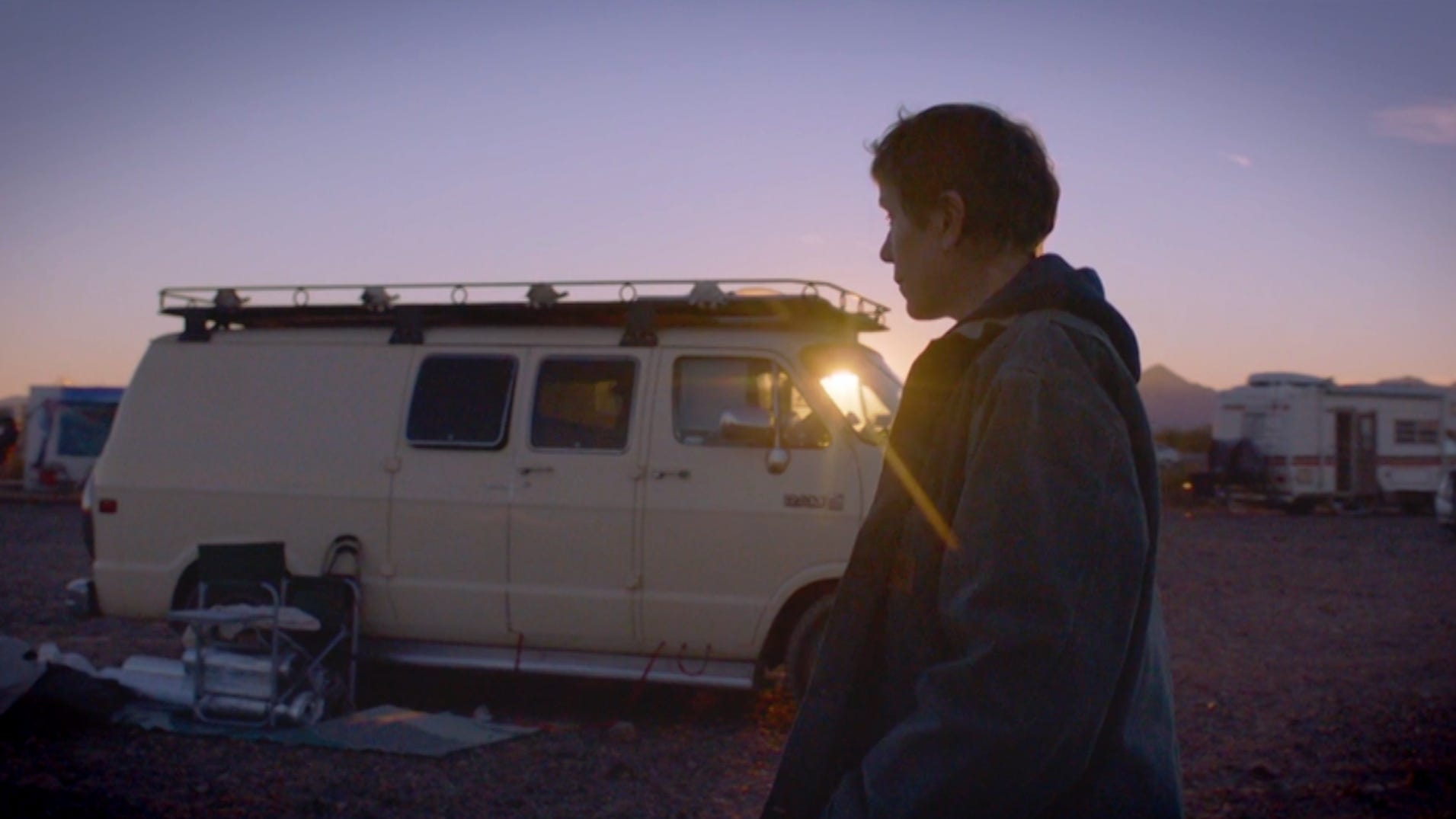
Some of us are born with wandering souls; traversing the world for meaning or peace or maybe simply adventure, always seeking answers in new places among new faces. Others come to amble about in response to the upending of their world, unable to trust that stability is something that can last or shunning it altogether in response to pain or loss that has ruined any faith they once had in the world. Whether it be through an innate need to explore or as a result of trauma foisted upon us, weary travelers have always provided insight not just into the world in which they live, but into the human psyche and spirit themselves. Nomadland thrusts us along side Fran (Frances McDormand) who has lost both her husband and steady employment in the wake of the Great Recession of the late aughts. As a result, Fran adopts the lifestyle of a modern-day nomad, traveling the western United States in a van while taking on odd jobs to survive and meeting fellow wanderers along the way.
Nomadland’s story and its characters dance along a fine line between the grindhouse nature of post-industrial capitalism and the free living nature of “nomads” or people who choose to live in portable dwellings such as vans that allow them to move at their leisure as opposed to one set home; some who are just trying to live life as free as possible in their twilight years and others who are stuck on America’s economic fringes and are simply trying to survive. The film shows that these two realities inevitably intersect because of the nature of living such a lifestyle and the choices that come along with sustaining it. The choice that its characters make to free roam around the country does not completely exist in a vacuum, as Nomadland’s 2011 post-Great Recession time setting makes clear. Fern in particular comes to become a nomad as a result of losing everything in the midst of the famous economic collapse, including the very town she and her husband worked and lived in following the closing of the sheetrock factory from which Empire, Nevada’s very lifeblood flowed. The forced departure is one part Fern running from the pain of the death of her husband and one part a depressing reality of the working homeless that has been a growing problem in our country that exists just beneath the surface, hidden away away from society’s sight and that has been portrayed in other films such as Sean Baker’s 2017 masterpiece The Florida Project.
Much like that film, Nomadland truly feels like a cinematic snapshot of our time, doubly so as the country continues to reel from the economic fallout of the COVID-19 pandemic. Chloe Zhao is able to effectively portray and communicate the feelings of despair, hopelessness, and loneliness that those who are thrust into economic hardship feel as they attempt to tread the treacherous waves of struggle and keep their heads above water. The job insecurity of temporary and seasonal work that is as dirty as it is low paying while you’re forced to grin and bear the pity of others whom offer assistance that you’re too proud to accept.
In a carryover of her direction in 2017’s The Rider, Zhao is able to bring forth a fantastic performance from her lead actor, this time with seasoned veteran actress Frances McDormand who submits yet another awards worthy appearance. McDormand’s performance is as quiet but commanding as the film itself is, utilizing subtle displays of emotionality to convey Fran’s fear, pain, and struggle as a woman with a restless soul just trying to survive in a world that hasn’t treated her the best.
Chloe Zhao has crafted a moving film that while quiet in its technical execution is loud in the empathy and care it demands for its characters and the very real lives they act out onscreen. Responsible for its writing, directing, and editing, Zhao imbues an authentic aesthetic in Nomadland that brings its working poor setting and characters to life, which is what makes the empathetic nature of the film so real. If it wasn’t before, her standing as one of the rising auteurs in Hollywood has been cemented. All of these characteristics are fueled by Zhao’s continued commitment to casting non-actors who come from the same backgrounds as featured in her films, which adds to the authenticity that so obviously comes through onscreen and serves as a testament to her skill as a director of actors, another feature as a filmmaker that she shares with the aforementioned Sean Baker. It is nearly impossible to imagine Zhao leaving the upcoming awards season without receiving any recognition for her high level, auteur showing. Nomadland is a triumph not just of her talents, but a powerful look into those left searching for something our society fails to provide them.
Image: Searchlight Pictures

